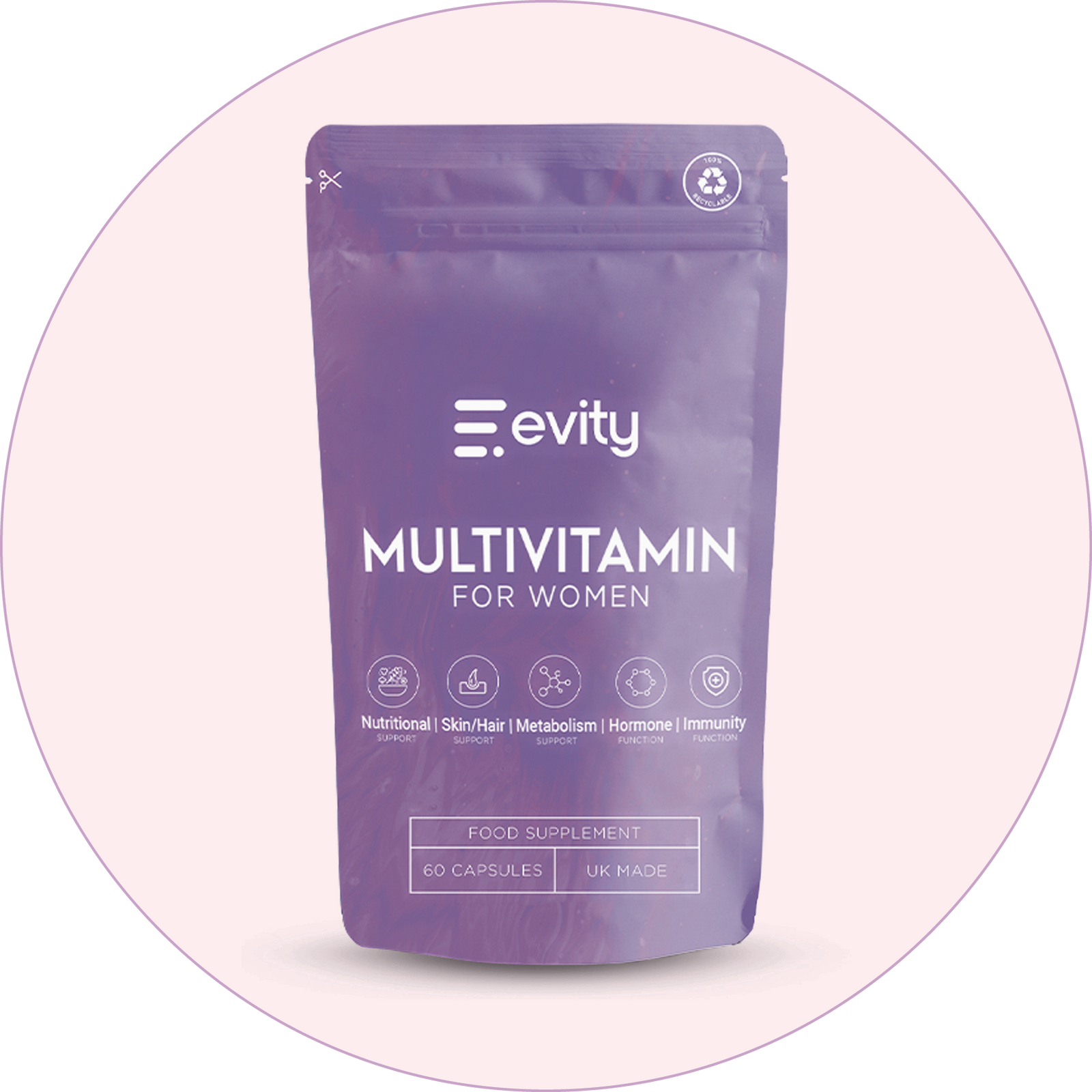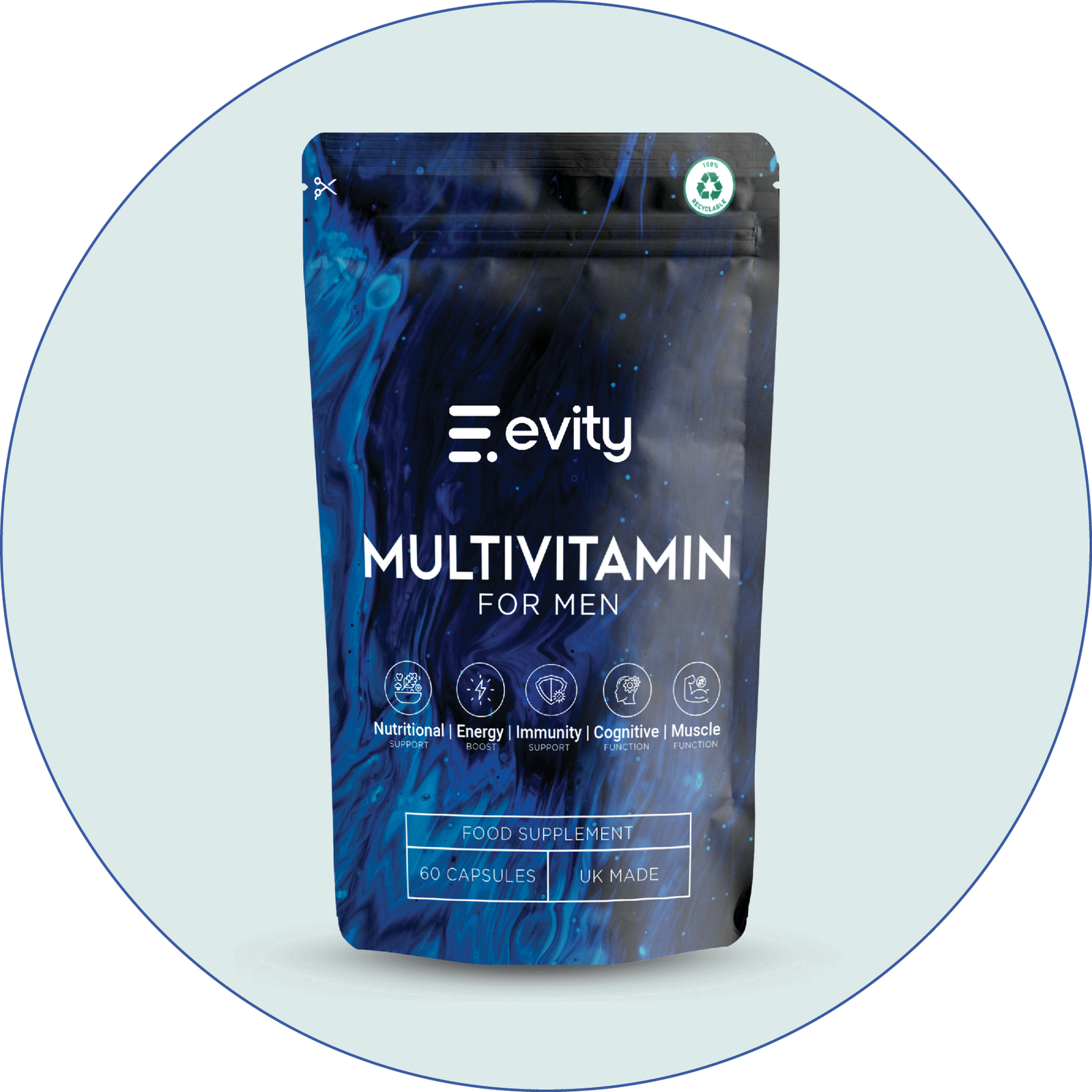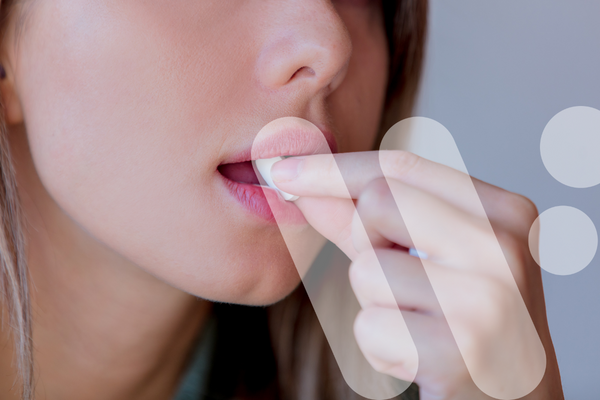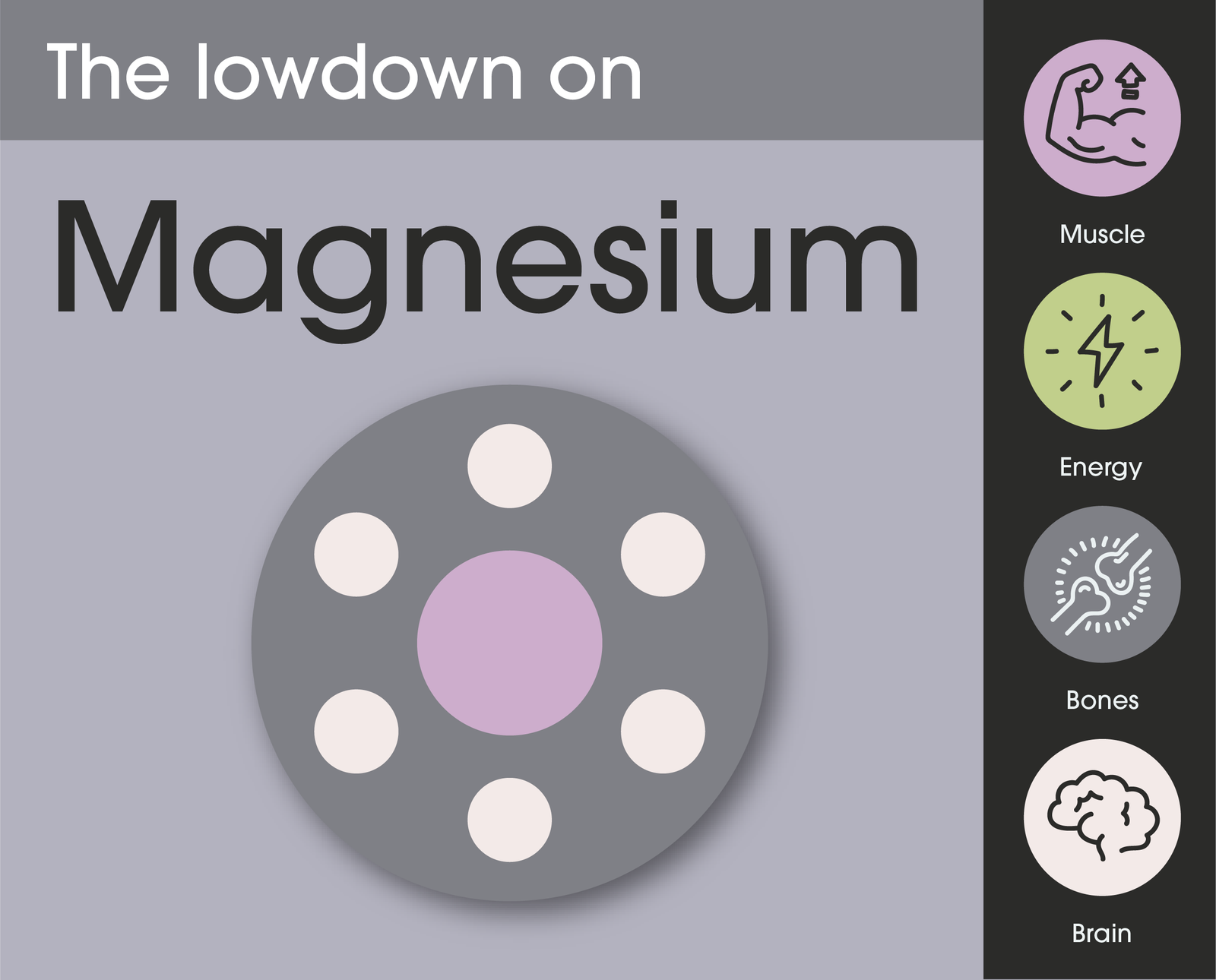
Benefits of Thiamine (B1) in the body
Energy production
Thiamine is co-factor forenergy production in the body at a cellular level, it helps turn the food we eat and the oxygen we breath into energy we can use (1).
Nervous system
Thiamine is also essential for it’senergy yielding effect on neuro-cells, as well as being needed for healthy nerve transmission (1,2). It is key for the maintenance of ahealthy nervous system and protecting against risk of neuro-degenerative diseases.
Mind health
Thiamine is important forpsychiatric health (3) both in development of diseases of the mind but also for everydayprevention of confusion, reduced memory, and sleep disturbances (4).
Heart health
Thiamine is important forheart health (1) and deficiency can be linked withheart failure (5).
Why our form of Thiamine is superior
Thiamine hydrochloride is in an absorbable and active form for the body to use (6).
Foods rich in Thiamine
Thiamine is found in range of animal and plant foods. Some of the highest food sources are as follows;
- Pork
- Fish
- Flax/linseeds
- Cannellini beans
- Green peas
- Firm tofu
- Brown rice
- Acorn squash
Some cereals are also fortified with thiamine.
Alcohol (7) lowers absorption from the diet anddiabetes (8) is at risk due to altered metabolism and clearance (8).
Tannins found in tea and coffee, and enzymes in raw fish can also reduce absorption of thiamine.
Daily recommended intake of Thiamine
Adult NRV/RDA is 1.2g for males and 1.1g for female increasing to 1.4mg in pregnancy and lactation.
Supplementation is usually between 1mg -10mg in a general multivitamin. Thiamine deficiency can be treated medically with doses of between 25mg and 100mg.
Latest research of Thiamine
Brain development in babies
Thiamine is important forbrain development of the baby in pregnancy, in some populations where white rice is the main form of nutrition for the mother, breastfed babies are at risk ofdeficiency (9).
Parkinson’s disease
Studies have linkedParkinson’s disease and thiamine, suggesting that the disease has an inverse relationship with thiamine consumption (11). Thiamine producing gut bacteria may have abeneficial effect (11).
Problems with overdose
Thiamine is a water soluble vitamin so there is little chance of toxicity. No upper tolerable limit has been set.
References:
- https://efsa.onlinelibrary.wiley.com/doi/epdf/10.2903/j.efsa.2009.1222
- https://www.karger.com/Article/Abstract/336339
- https://www.frontiersin.org/articles/10.3389/fpsyt.2019.00207/full?fbclid=IwAR0ljpQNYZ_YsV-WDN_X9TeYmKKdymR6fy75L0VggzqoGgSZ0q8zMtM
- https://efsa.onlinelibrary.wiley.com/doi/epdf/10.2903/j.efsa.2010.1755
- https://www.sciencedirect.com/science/article/abs/pii/S003306201830029X
- https://www.ncbi.nlm.nih.gov/pmc/articles/PMC3293077/
- https://pubmed.ncbi.nlm.nih.gov/6254354/
- https://www.ncbi.nlm.nih.gov/pmc/articles/PMC4058733/
- https://nyaspubs.onlinelibrary.wiley.com/doi/full/10.1111/nyas.14610
- https://ccforum.biomedcentral.com/articles/10.1186/s13054-021-03648-9
- https://pubs.rsc.org/en/content/articlelanding/2022/fo/d2fo01195f/unauth





